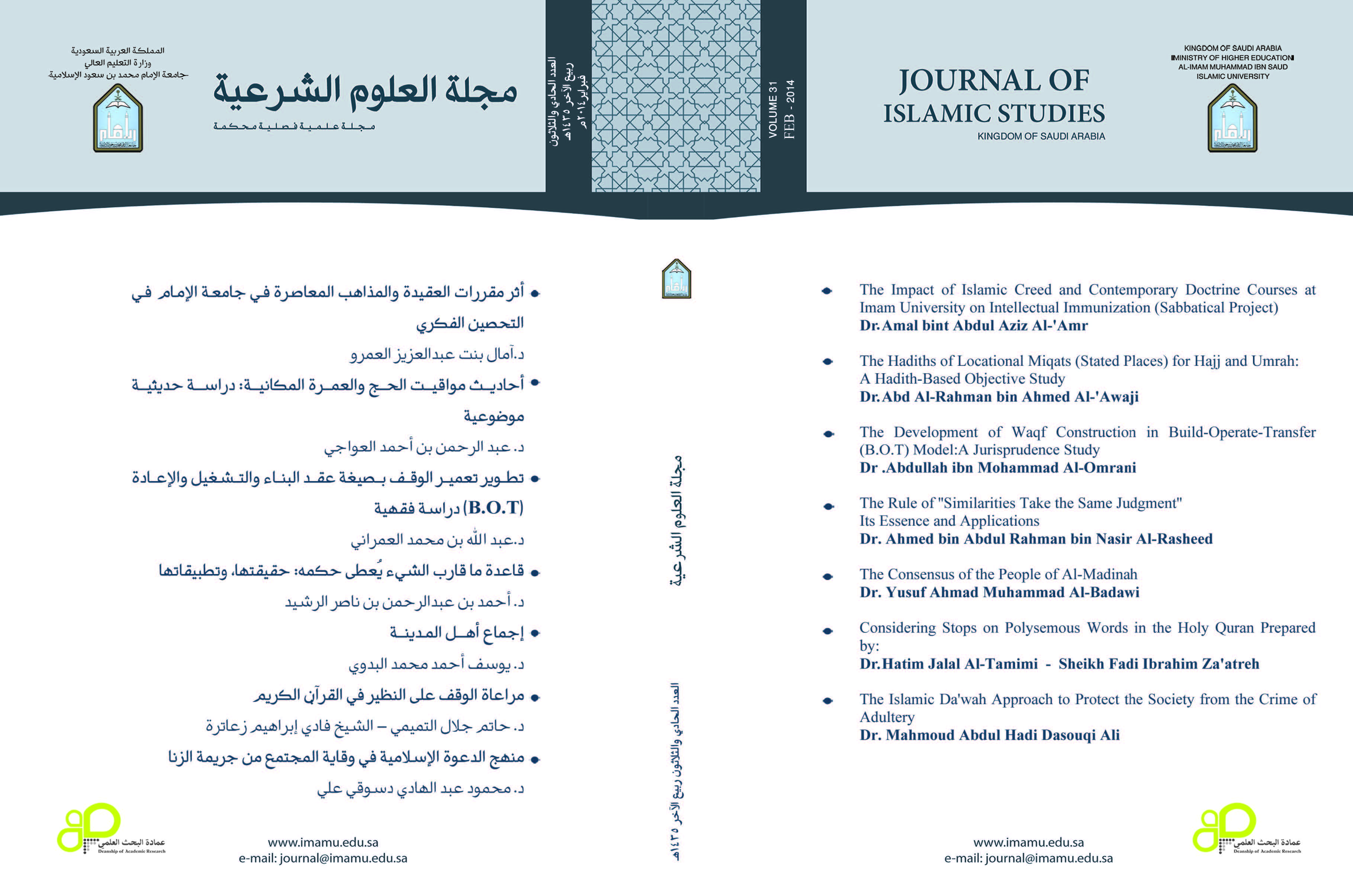The Rule of ''Similarities Take the Same Judgment'' Its Essence and Applications
Abstract
The rule of ''Similarities take the same judgment'' has been stated by scholars in different forms; such as the informative and interrogative form. The rule means that what is similar to something takes its judgment whether that similarity is perceivable or conceivable. Moreover, the similarity may also have to do with the place, time, attribute and other areas of similarities. Reference to this rule has varied, but it was most mentioned by the Malikis.
This rule is connected with other jurisprudent rules such as the following rules: "the judgment is not made on something if it is not existed'', ''probability is like certainty'', ''can what is expected be treated like what is real?'', ''does what matter the current or futuristic situation?” and ''can those who are about to die take the same judgment as the dead?’‘.
Applying the rule has to meet a number of conditions. The rule has an influence on most issues of Islamic jurisprudence except for the penalties and the associated issues where the rules are not applied. That is because assumption is considered as a doubt and applying penalties is invalid when there is a doubt. However, the rule affects a number of fundamental issues; therefore, I decided to investigate this fundamental jurisprudent rule.




